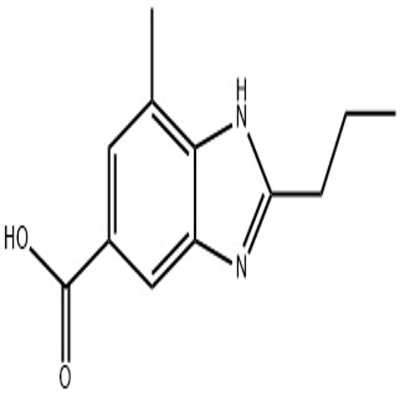-
Categories
-
Pharmaceutical Intermediates
-
Active Pharmaceutical Ingredients
-
Food Additives
- Industrial Coatings
- Agrochemicals
- Dyes and Pigments
- Surfactant
- Flavors and Fragrances
- Chemical Reagents
- Catalyst and Auxiliary
- Natural Products
- Inorganic Chemistry
-
Organic Chemistry
-
Biochemical Engineering
- Analytical Chemistry
-
Cosmetic Ingredient
- Water Treatment Chemical
-
Pharmaceutical Intermediates
Promotion
ECHEMI Mall
Wholesale
Weekly Price
Exhibition
News
-
Trade Service
5-(Isoxazol-3-yl)thiophene-2-sulfonyl chloride, commonly referred to as iso-thiophene sulfonate, is an important intermediate chemical used in the production of a variety of chemical products.
The chemical industry relies heavily on the use of intermediate chemicals such as iso-thiophene sulfonate to manufacture final products, and the demand for these intermediate chemicals is growing steadily.
In this article, we will explore the upstream and downstream products of iso-thiophene sulfonate in the chemical industry.
Upstream Products
The production of iso-thiophene sulfonate typically involves several upstream processes, including the synthesis of 5-iodo-thiophene-2-sulfonyl chloride and the subsequent sulfonation of the compound.
5-Iodo-thiophene-2-sulfonyl chloride is typically synthesized through the iodination of 5-(2,4-dihydroxyphenyl)-thiophene-2-sulfonyl chloride, which is derived from the reaction of 2,4-dihydroxybenzaldehyde with thiophene-2-sulfonyl chloride in the presence of an acid catalyst.
The sulfonation of 5-iodo-thiophene-2-sulfonyl chloride is typically carried out using sulfuric acid, resulting in the formation of iso-thiophene sulfonate.
Downstream Products
Iso-thiophene sulfonate is a versatile intermediate chemical that can be converted into a wide range of downstream products through a variety of chemical reactions.
Some of the most common downstream products of iso-thiophene sulfonate include:
- Thiophene-based polymers: Iso-thiophene sulfonate can be polymerized using a variety of polymerization techniques to produce thiophene-based polymers.
These polymers have excellent thermal stability, mechanical properties, and solubility in solvents and are widely used in the production of plastics, adhesives, and textiles. - Biodegradable plastics: Iso-thiophene sulfonate can be converted into biodegradable plastics through a process known as polymerization-based biodegradation.
These plastics are eco-friendly and can be easily decomposed into harmless compounds through natural biodegradation processes. - Pharmaceuticals: Iso-thiophene sulfonate can be transformed into a variety of pharmaceuticals through chemical reactions with various pharmaceutical precursors.
These pharmaceuticals include anti-inflammatory drugs, antidepressants, and analgesics, among others. - Agrochemicals: Iso-thiophene sulfonate can be converted into a range of agrochemicals, including herbicides, insecticides, and fungicides.
These agrochemicals are used to enhance crop yields, protect crops from pests and diseases, and maintain soil fertility. - Cosmetics: Iso-thiophene sulfonate can be used in the production of various cosmetic products, including soaps, shampoos, and lotions.
- Pigments and Dyes: Iso-thiophene sulfonate can be converted into a variety of pigments and dyes through chemical reactions with aromatic compounds.
These pigments and dyes are used in the production of inks, paints, and textiles. - Lubricants: Iso-thiophene sulfonate can be used in the production of lubricants and other specialty oils due to its excellent thermal stability and low volatility.
In





![benzyl N-{2-[4-(4,4,5,5-tetramethyl-1,3,2-dioxaborolan-2-yl)phenyl]ethyl}carbamate](https://file.echemi.com/fileManage/upload/goodpicture/20210823/m20210823171124543.jpg)

